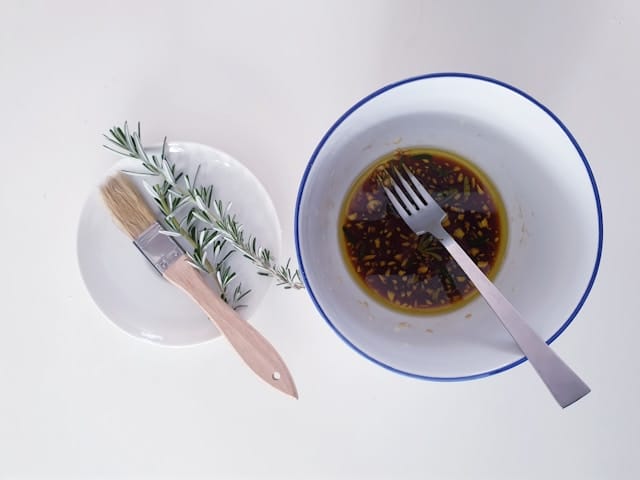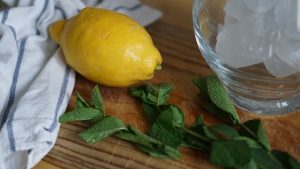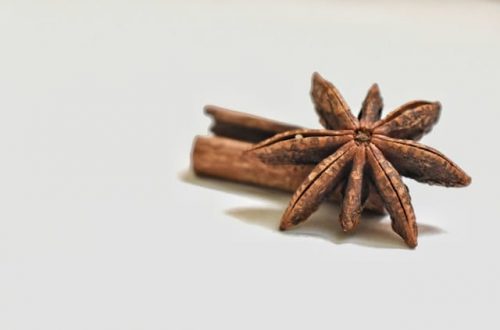Hey spice enthusiasts! Chef Spice Harrington here, ready to dive into one of my favorite culinary techniques: marinating. I’ve always believed that a good marinade is like a magic potion for your food, transforming ordinary ingredients into something truly extraordinary. For over 20 years, I’ve seen firsthand how marinating can elevate dishes from simple weeknight meals to show-stopping culinary creations. So, let’s get started!
Why Marinate? More Than Just Flavor
Now, you might be thinking, “Why bother with marinating? Isn’t it just adding extra flavor?” Well, yes, flavor is a huge part of it, but it’s so much more than that. Marinating is a culinary technique that involves soaking foods in a seasoned liquid before cooking. This process not only infuses the food with flavor but also helps to tenderize it. Think of it as a spa day for your meat, poultry, or seafood!
Here’s the breakdown of why marinating is essential:
- Flavor Enhancement: Marinades penetrate the surface of the food, adding layers of flavor that simply salting and peppering can’t achieve.
- Tenderization: Acidic ingredients like vinegar, lemon juice, or yogurt break down tough muscle fibers, resulting in a more tender and enjoyable bite.
- Moisture Retention: A good marinade helps to keep the food moist during cooking, preventing it from drying out, especially on the grill.
The Spice Rack’s Role in Marinating
Spices are the unsung heroes of the marinade world, and they are absolutely essential. They are the key to unlocking complex and exciting flavor profiles. I’ve spent years studying spices, and I’m constantly amazed by their ability to transform a dish. They bring warmth, depth, and a certain je ne sais quoi that elevates the entire culinary experience.
How do spices interact with other ingredients in a marinade?
- Acidic Components: Spices like paprika, chili powder, and cumin complement acidic ingredients like lemon juice or vinegar, creating a balanced and vibrant flavor.
- Oils: Oils help to distribute the spices evenly and protect the food from drying out. They also help to carry the flavors deeper into the food.
- Sweeteners: A touch of sweetness, like honey or maple syrup, can balance the savory spices and add a delicious caramelized crust when cooked.
- Aromatics: Garlic, ginger, and onions are flavor powerhouses that add depth and complexity to any marinade.
Marinating 101: The Basic Components
So, what goes into a killer marinade? Think of it as a balanced equation with four essential components:
- Acid: Tenderizes and brightens the flavor (e.g., lemon juice, vinegar, yogurt).
- Oil: Carries flavors and keeps food moist (e.g., olive oil, sesame oil, vegetable oil).
- Flavorings: Herbs, spices, aromatics (e.g., garlic, ginger, rosemary, cumin).
- Salt: Enhances flavor and helps with moisture retention (e.g., soy sauce, kosher salt, sea salt).
Spice’s Signature Marinade Recipes
Alright, let’s get to the fun part! Here are a couple of my go-to marinade recipes that are sure to impress. Remember, cooking should be fun and accessible, so don’t be afraid to experiment and adjust these recipes to your liking!
Teriyaki Marinade
This marinade is perfect for chicken, beef, or tofu. It’s sweet, savory, and packed with umami flavor.
Ingredients:
- 1/2 cup soy sauce
- 1/4 cup mirin (sweet rice wine)
- 2 tablespoons sake (rice wine)
- 2 tablespoons sugar
- 1 tablespoon grated ginger
- 2 cloves garlic, minced
- 1/2 teaspoon ground ginger
Instructions:
- Combine all ingredients in a bowl and whisk until the sugar is dissolved.
- Marinate your protein of choice for at least 30 minutes, or up to overnight in the refrigerator.
- Grill, bake, or stir-fry as desired.
Lemon-Herb Marinade
This marinade is light, bright, and perfect for fish, chicken, or vegetables. It’s a flavor explosion in every bite!
Ingredients:
- 1/4 cup olive oil
- 1/4 cup lemon juice
- 2 cloves garlic, minced
- 1 tablespoon chopped fresh rosemary
- 1 tablespoon chopped fresh thyme
- 1 teaspoon lemon zest
- 1/2 teaspoon salt
- 1/4 teaspoon black pepper
Instructions:
- Combine all ingredients in a bowl and whisk to combine.
- Marinate your protein or vegetables for at least 30 minutes, or up to 4 hours in the refrigerator.
- Grill, bake, or sauté as desired.
Tips for Marinating Like a Pro
To really nail your marinating game, here are a few tips I’ve learned over the years:
- Use a Non-Reactive Container: Avoid aluminum containers, as they can react with acidic marinades and alter the flavor. Glass, plastic, or stainless steel containers are your best bet.
- Don’t Over-Marinate: While marinating is great, too much of a good thing can be detrimental. Over-marinating can result in mushy or overly salty food.
- Pat Dry Before Cooking: Before cooking, pat the marinated food dry with paper towels. This will help it to brown properly and prevent it from steaming instead of searing.
- Save the Marinade (Safely): If you want to use the marinade as a sauce, make sure to boil it for several minutes to kill any bacteria.
Final Thoughts on Marinating
Marinating is an art, a science, and a whole lot of fun! It’s a way to connect with your food, experiment with flavors, and create memorable culinary experiences. So, grab your spices, get creative, and let’s explore the world of flavor together. I can’t wait to see what you create!
Happy cooking, friends!







